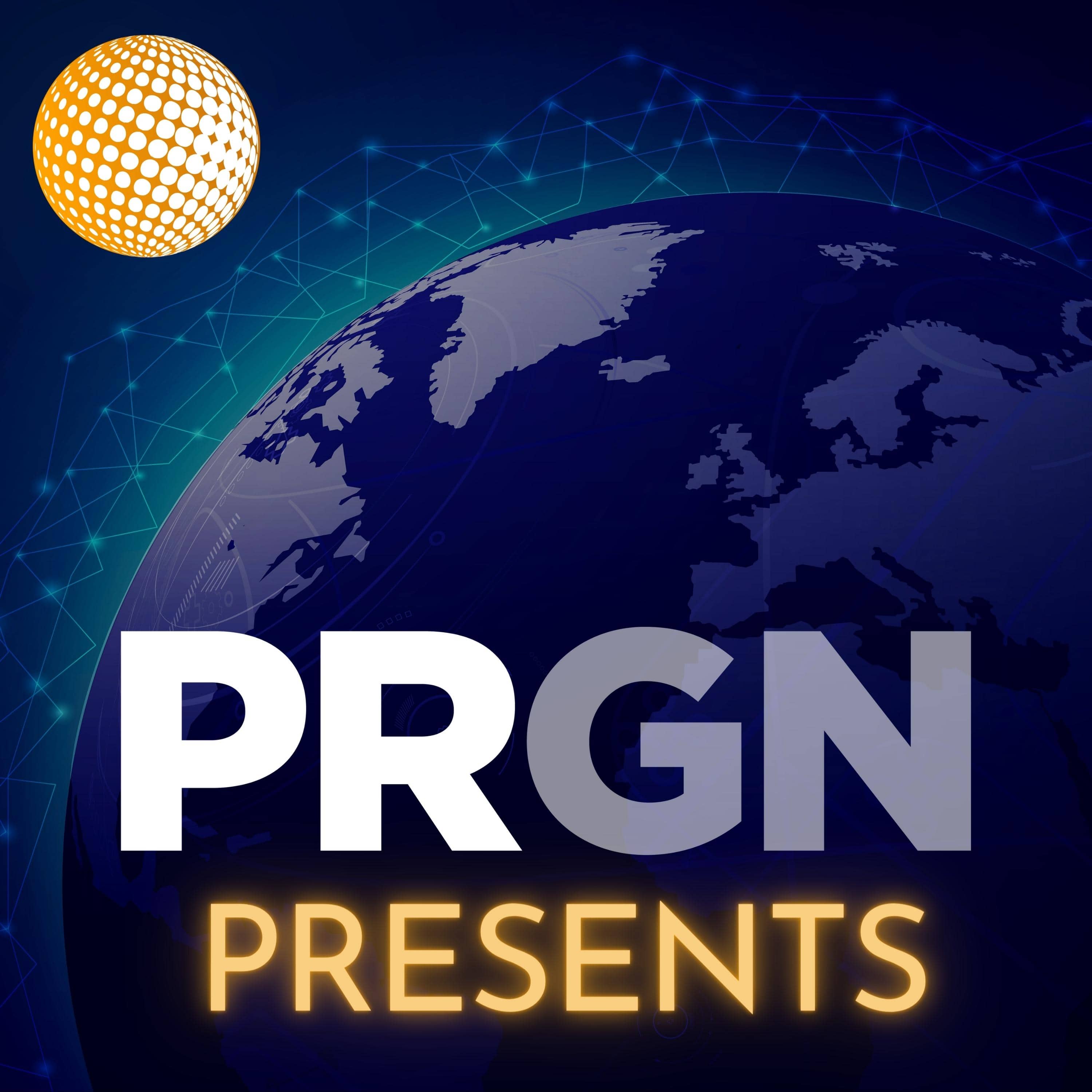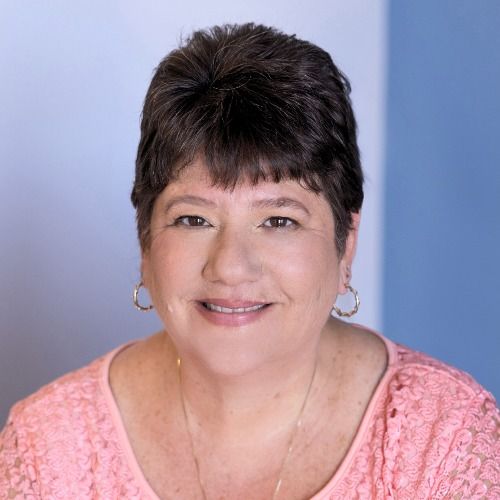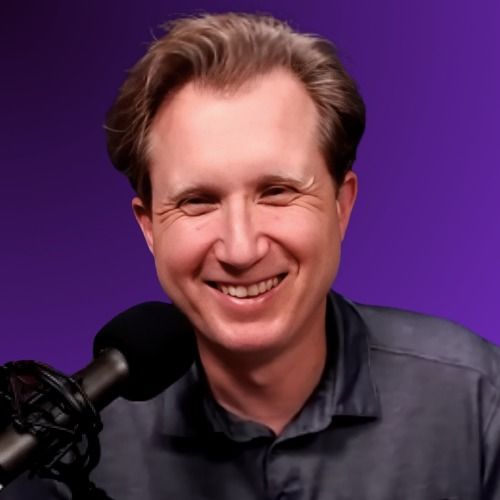S1 E7: Succession Planning and Building a Family Legacy with Amanda Hill and Owen Cullen
Succession planning is a process not an event. But when the succession includes family members, how do you ensure a smooth process without upsetting the family dynamic?
About the Guests
Amanda Hill is CEO of Three Box, where she counsels Fortune 500 companies and meteoric brands with strategic communications. She holds the Accredited in Public Relations credential and degrees from Baylor University and The University of Texas at Austin. In 2019, Amanda was named a “40 Under 40” by the Dallas Business Journal.
Owen Cullen is Managing Director of Cullen Communications, the Dublin-based PR agency that is Ireland’s sole member of PRGN. In addition to running the family business, Owen is also Chairperson of the Public Relations Consultants Association (PRCA), the representative body for Ireland’s PR consultancies.
About the Host
Abbie Fink is vice president/general manager of HMA Public Relations in Phoenix, Arizona and a founding member of PRGN. Her marketing communications background includes skills in media relations, digital communications, social media strategies, special event management, crisis communications, community relations, issues management, and marketing promotions for both the private and public sectors, including such industries as healthcare, financial services, professional services, government affairs and tribal affairs, as well as not-for-profit organizations.
PRGN Presents is brought to you by Public Relations Global Network, the world’s local public relations agency. Our co-host and executive producer is Adrian McIntyre with Speed of Story, a B2B communications firm in Phoenix.
Follow the Podcast
If you enjoyed this episode, please follow PRGN Presents in Apple Podcasts, Spotify, Google Podcasts, or any other podcast app. We publish new episodes every other Thursday. To have them delivered automatically and free of charge, just choose your preferred podcast player from this list, open the app, and click the button to “Follow” or “Subscribe” to the show: https://prgnpodcast.com/listen
Need to hire a PR firm?
Leading a business effectively in today's fast-paced world requires expert guidance and a strong communications strategy. No matter where you do business, PRGN has a member agency in your region with the deep industry expertise, international experience, and local market knowledge you need to connect with your target audience and achieve your goals. Find a PR firm near you »
Transcript
Welcome to the Public Relations Global Network's 30th anniversary podcast. I'm Adrian McIntyre ...
Abbie Fink:And I'm Abbie Fink, vice president/general manager of HMA Public Relations in Phoenix, Arizona and a founding member of PRGN. With public relations leaders embedded into the fabric of the communities we service, clients hire our agencies for the local knowledge, expertise, and connections in market spanning six continents across the world.
Adrian McIntyre:Our guests on this "limited edition" podcast series are all members of the Public Relations Global Network. They'll discuss such topics as workplace culture, creative compensation and succession planning, the importance of sustainability and Environmental, Social, and Governance programs, crisis communications, and outside-of-the-box thinking for growing your business.
Abbie Fink:For more information about PRGN and our members, please visit prgn.com. And now, let's meet our guests for this episode.
Amanda Hill:My name is Amanda Hill. I'm CEO at Three Box Strategic Communications in Dallas, Texas.
Owen Cullen:Hi, I'm Owen Cullen, and I'm Managing Director of Cullen Communications in Dublin, Ireland.
Abbie Fink:Amanda, one of the interesting things about succession planning for any business owner is really determining who's going to be the next me for me. And you became the next me for your father, who owned the agency for several years. But you didn't start off working for your dad's company. You went out and got some other experience. And so when the time came, what was those discussions like around the kitchen table?
Amanda Hill:Right. Well, I actually lived in a different city at the time, and I had had my first son and was working really hard in PR, but for someone else. And I started thinking, "Why am I working so hard for someone else? I could be doing this on my own." And then I thought, "Wait, I know somebody who has an agency, who happens to be my father." And so, I actually initiated those conversations to begin, and I started with asking what his plan was. And his plan really was to let it run its course, and then give everyone plenty of notice and shut the doors. And I thought, "No, that you've created value in a company. I'd love to have the opportunity to continue on with that." And so it really started with me convincing him that I could join the company. And so I started as a director in the company. It, from the very beginning, was a negotiation. Because I had worked elsewhere, I knew my value. I knew what we needed as a family, my husband and I. And so starting there, working my way to earn the respect of the team at what was Lewis Public Relations at the time, the name of our company. And then the ownership conversations happened more organically over the next couple of years.
Abbie Fink:Owen, your situation was a little bit different. You came straight into the agency that was owned by your father. Talk a little bit about that.
Owen Cullen:Sure. So when I left college, I was I suppose very influenced by my father. He kind of guided me in such a way to do what I did in college. And then after I came to the end of a master's, he invited me into the office to kind of find my feet and see would I like it. And rolled on the clock a couple of years, and I settled my feet into agency land. And very unexpectedly, while I realized my father was coming to a retirement age, I went into his office one day, and he proposed to see what I thought about taking over the agency. Because he just hit the magic 66, and it was a nearly a done deal at that point. And the agency transferred to my brother and sister and myself. That was in 2012.
Abbie Fink:And now you own it outright?
Owen Cullen:Yeah. So there was a process there. Because at the same time, my brother was retiring from playing rugby. My sister was finding herself as well in what she wanted to do in her career. So the three of us were shareholders. And while I was active in the agency, it then just materialized over the next couple of years that they'd found different paths for themselves. And I decided I wanted to own it outright. And then we started a process where I bought the two of them out. So now I'm 100% owner.
Abbie Fink:And I think about succession planning, just two business owners in general talking about it. There's got to be a whole another dynamic when you're talking about parent to child, and the role that you're playing there, because you're the employee, now you're the potential business partner, but you're still the kid. And how do you manage that? What do those dynamics look like? You have to have set some parameters around what those conversations off-the-clock look like versus what's on-the-clock?
Amanda Hill:For our family, we had to have some ground rules even before I started with the agency. My dad said, "You need to know that if this doesn't work out, you're always my daughter. So I will fire you if this is not the right fit," which is a little intimidating. But he's absolutely right. That our family relationship always came first. And so as we worked together and then through the transaction, there were some kind of ground rules that, "We don't talk about work around my kids, my husband, my mom." It's boring for them. And honestly he and I, my dad and I, can go into a rabbit hole and talk forever about that. So we needed to put those parameters around. We also, I call him Blake at the office or professionally. That's just important because I felt that it set a tone. It made others around us feel more comfortable. It also was a level of respect and peer dynamic that obviously if you call him dad, that you automatically have that parent/child relationship, which is important to us, but in business we're really partners and colleagues more than anything. So those are the few of the things that we did.
Abbie Fink:Owen, what were the conversations like with your employees during the transition, that coming from... Well, in both cases, taking over from your father with the three of you, but then ultimately, you went from being a co-employee with these folks, to their boss and now owning the company. What were some of those conversations like?
Owen Cullen:So that was a very interesting experience. So it all happened very quickly in terms of the transfer, the legalities of it, but practically what happened in the office was a little bit slower. So for the next maybe six months, everything was normal. My dad was still in his office. I still call my dad "my dad" rather than Frank. And there came a point of the staff were kind of wondering like, "Who is calling the shots here now? Who is the boss?" And for me, I was actually the youngest person in the agency at the time, which was an interesting dynamic. Many agency leaders talk about how do you manage millennials? I was a millennial managing people that were of other generations. But I think the dynamic there was, there was a bit of uncertainty for people. And the big thing there was just a certain change at a certain point. So about six months in, we had a bit of an office swap, and that was the real sign that there was something changing. And yeah, the support of the team, who were there for quite a long time. They're still there today. And I took me a bit of time to find my feet, but thankfully, 10 years on, we're still here.
Abbie Fink:Excellent. Well, there must be some lessons learned and that you bring to the table in your consulting role. When you're talking with other business owners that are thinking about this, you've got personal experience and the pros and cons and such. So how has this experience informed you now as a business owner, but also as a communications professional advising business clients that are making similar and important decisions for their companies?
Amanda Hill:I would say that structure is really important process. Having some defined guideposts around that kind of transition. Everything, from the transaction itself, for our family, for this situation. Whether it's family or not, it was helpful to have an agreement of not just the valuation of the company and how that was going to then be transferred in terms of payment, but also an employment contract. It was really helpful to have outlined, as the founder of the company, "Here's what your employment role looks like," and there was a definite end. And so each year he would come back and ask now, "Remind me, what is my schedule look like next year?" And we had to revisit, and it did ramp down, and that did help with the transition between the two of us. So when there was any kind of ambiguity, we had it already documented. And then with our team that helped them understand who was in charge and what the expectation was for them, because a lot of these conversations happen behind closed doors with legal and financial professionals. The team doesn't know anything that's happening. And so communicating with them and being really clear about who is the leader and what this means, I think was really important.
Abbie Fink:And when does that communication happen? When did you start talking to the staff that the ownership was evolving? And it was going to be you and ...
Owen Cullen:So that happened, again, probably a couple of months later. The deal was done in December 2012, but I picked the 1st of May as my anniversary of when I fell into the seat, or sat into the seat, should I say. So it had started that this was the process that was taking place. It was talking to staff, but also clients as well. So my father set up the agency in 1985. I was born in 1983. So he had some long-lasting relationships with clients since 1986. He was always the face of it. And I was getting to meet people for the first time. I think it was all just about getting that face time and instilling, I suppose, the confidence in the change. They would've respected his viewpoint for many years of counsel. And they felt, well, if he thinks I was the right man for the job, then they're happy with that, too. And the same would've passed on to the team as well. Took a bit of a different direction, I suppose.
Abbie Fink:Now that you've gone through it and are the owners of your firms and looking forward to your future, what are you doing to think about what happens when it's the next transformation of the company to another potential, either partner or ownership structure? Owen, have you started thinking in terms of what's next for you?
Owen Cullen:I do, yeah, kind of amazingly. It is always on my mind about what the future holds. I don't have any kids, so that route at the moment isn't there. I suppose, owning the company outright is ... there's an excitement about what direction we can go in into. And I do want to develop the agency further. I like being an owner of an agency, and I've communicated to staff ourselves that I do see myself replacing myself from a management director standpoint in the future and getting someone in there to take it on to the next level.
Abbie Fink:Amanda, for you, what's the future?
Amanda Hill:Much like Owen, I think equipping the next generation and showing them a path to leadership within the organization. Part of it was building an agency that was beyond one person. And my father had started doing that, but we really took it to a whole another level and are equipping and empowering our own team to feel a sense of leadership and to have leadership roles within the organization. So to me that's exciting is that, we'll have teams who are imagining and building something that is beyond what I might envision for the company. And while that can be kind of scary, because it is an important piece of me. It really is empowering to think that this could have wings beyond any one person. And so that's really my goal for now. I love being an owner. I can't imagine working for anyone else. And so I think just being the cheerleader and the coach and the leader for them, and then to be able to sit on the sidelines a little bit and watch them run and fly would be amazing.
Abbie Fink:Outside looking in, you've created an atmosphere and allowed others to see the openness to the process. I mean, they saw how you have evolved and taken on and owned, created an ownership mentality and went for what you wanted and created that. And if you're empowering your teams to think and do in the same way, as the owner, you start to see and potentially identify who else could be part of that structure and may not necessarily be a financial partnership, but who is leading and guiding that organization who thinks like you, challenges you, and sets the course alongside of you for what that future can look like. And I think as any of us are thinking about our own businesses, whether that's PR agencies or others, in that, do we want it to continue when we are no longer running it? How do we do that? And how do we create a scenario that allows the people that we're currently working with, or others that may not be yet in front of us, to come in and help us grow that next phase?
Adrian McIntyre:Thanks for listening to this episode of the Public Relations Global Network's 30th anniversary "limited edition" podcast series.
Abbie Fink:You can find all the episodes now in your favorite podcast app. Episodes are also available on our website – along with more information about PRGN and our members – at prgn.com.





